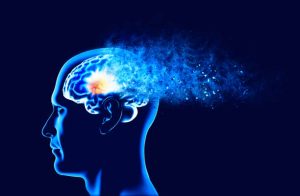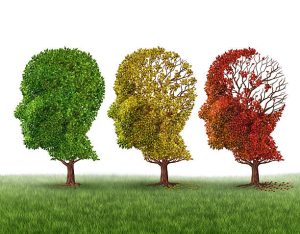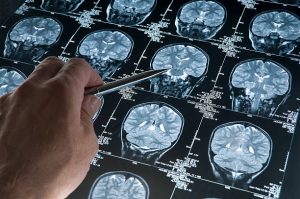Alzheimer’s disease, notorious for memory deterioration and cognitive decline, haunts the aging population. Peering into this condition reveals the brain’s cognitive faculties fading, rendering simple activities challenging. It’s distinguished from other dementia forms by its characteristic brain abnormalities – a destructive mixture of amyloid plaques and tau tangles.
This condition’s relentless advance is profound; it casts a shadow over countless individuals’ later years. Alzheimer’s is a universal foe that indiscriminately infiltrates every community. The staggering figures reflect a crisis that extends beyond individual health, demanding global attention and concerted effort.
Early recognition is paramount in battling Alzheimer’s. Catching it at its onset can significantly slow the progression of severe symptoms, preserve life’s quality, and guide management tactics. Staying alert to nuanced behavioral and cognitive shifts is crucial, helping people and their families to intervene before the disease fully unfolds.
Spotting Alzheimer’s Disease Early
Contents

Short-term memory lapses often align with normal aging, but Alzheimer’s induces a deeper forgetfulness. Important facts and familiar names swiftly slip away, signifying a loss beyond mere absent-mindedness. This type of memory impairment disrupts daily activities and impedes life’s continuity.
Mental processing becomes unreliable; decision-making turns into a daunting task, numerical reasoning goes awry, and following directions becomes a labyrinthine challenge. These symptoms flag early Alzheimer’s whereby routine mistakes grow frequent, igniting frustration.
The disease hampers the brain’s ability to perform known tasks, transforming simple routines into enigmas. Skilled individuals find ordinary activities bewildering, signaling the need for prompt attention.
Alzheimer’s Disease Risk Contributors

Aging primarily heightens the risk for Alzheimer’s, with vulnerability intensifying as one grows older. Although youth doesn’t confer complete protection, the threat escalates notably with advancing years.
Genetic heritage also plays a significant role in risk. A family history can signal an inherited susceptibility, echoing the disease’s recurrence across generations. Lifestyle choices offer a modifiable risk factor – heart health and overall well-being can fortify one’s defenses against Alzheimer’s. Nutritious eating, exercising, and avoiding smoking serve as protective measures, while a history of head injuries may predispose one to the condition.
Proactive Measures for Early Discovery

Early detection hinges on proactive health monitoring and regular evaluations. Cognitive screenings act as silent sentinels against Alzheimer’s subtle advance and play a crucial role in safeguarding mental acuity.
Intellectual stimulation and physical exercise are potent fortifications, enhancing cognitive resilience to ward off Alzheimer’s. A diet rich in brain-supportive nutrients – omega-3s, antioxidants, vitamins, and minerals – offers additional fortification, bolstering the brain’s defenses against this degenerative tide.
Pinpointing Alzheimer’s Disease

Modern diagnostics of Alzheimer’s necessitate expert medical intervention. Healthcare professionals meticulously chart cognitive changes and symptom patterns, crafting each individual’s diagnostic journey.
A thoughtful blend of neurocognitive tests, imaging procedures, spinal fluid analysis, and blood examinations elaborates on the Alzheimer’s narrative, enabling personalized diagnoses.
Receiving an Alzheimer’s diagnosis cuts two ways – it clarifies the condition while confronting one with reality. However, it empowers patients with knowledge, informs care strategies, and promotes support network engagement, transforming the diagnosis into a guiding light through the condition’s fog.
Approaches to Alzheimer’s Care

A multifaceted cache of treatments underlies Alzheimer’s care, each tailored to temper cognitive decline and foster residual skills. Therapeutic landscapes evolve constantly, seeking to carve moments of clarity within the encroaching mental haze.
Support transcends medication; it involves crafting secure, accommodating living spaces and simplifying routines. Beyond physical arrangements, it relies on the continuous presence of supportive individuals and the consistency of significant recollections.
Caregivers represent the bastion of fortitude in Alzheimer’s battle, blending therapeutic engagements with behavioral management. They not only provide direct care but also champion the cause for broader awareness.
Prospecting Alzheimer’s Research Advances

Looking ahead, Alzheimer’s research forecasts innovative approaches and methods. Early detection promises greater subtlety and precision, and new clinical trials pioneer future treatments, sowing seeds of hope for tomorrow’s triumphs.
This relentless pursuit for Alzheimer’s solutions bears witness to humanity’s unyielding resolve for a brighter tomorrow. Scientists and advocates maintain their diligent quest for progress, inching ever closer to a world free from Alzheimer’s confines.
To navigate Alzheimer’s tribulations is to voyage through uncertainties. Yet, with knowledge, vigilance, and scientific advance as our guides, we journey with optimism. This exploration has charted a path from recognizing nascent symptoms to the importance of early diagnosis, from embracing therapies to the anticipation of research victories. The narrative empowers each person to remain vigilant, informed, and resilient amidst Alzheimer’s challenges, rooting for ultimate awareness, proactive detection, and unceasing inquiry to light the way to a future graced by comprehension and a viable cure.

